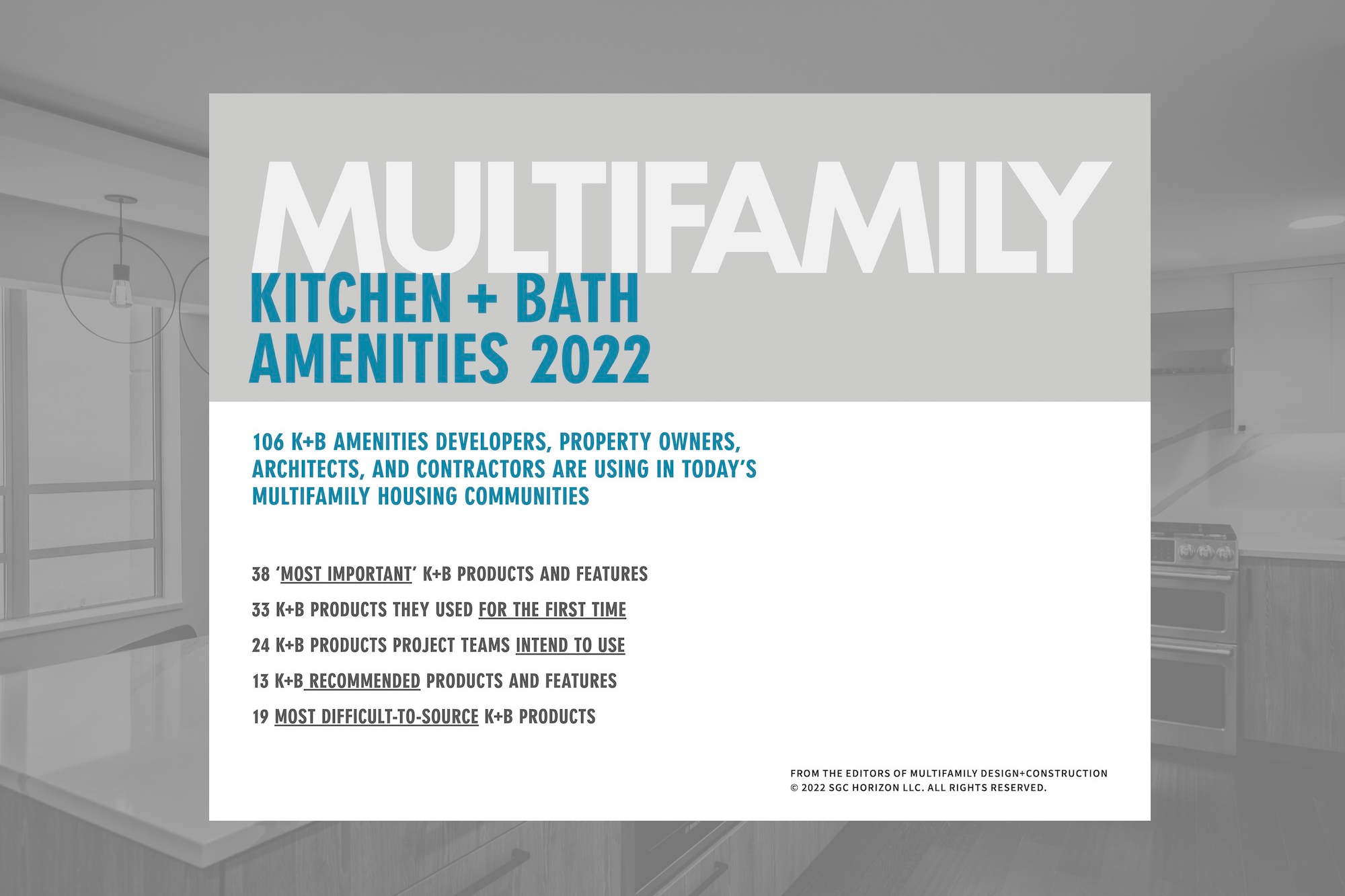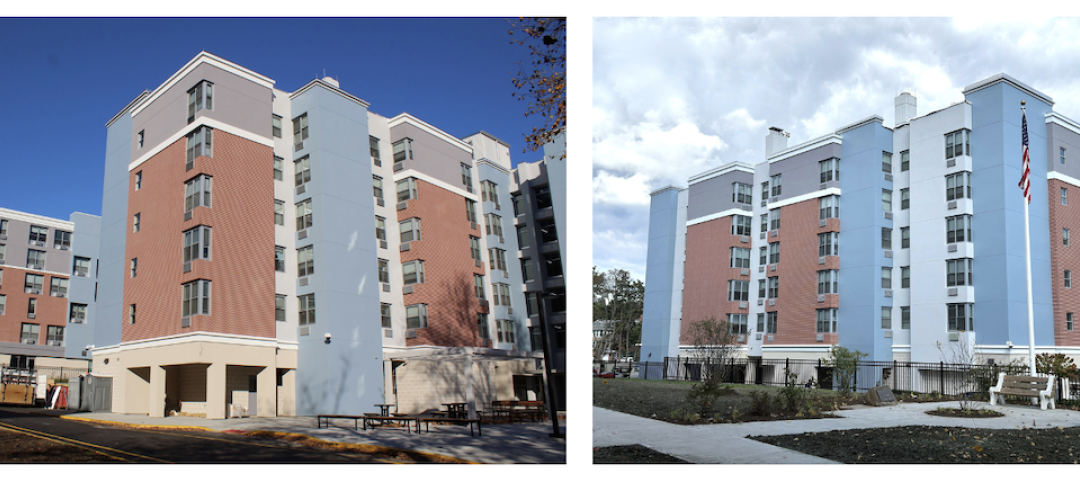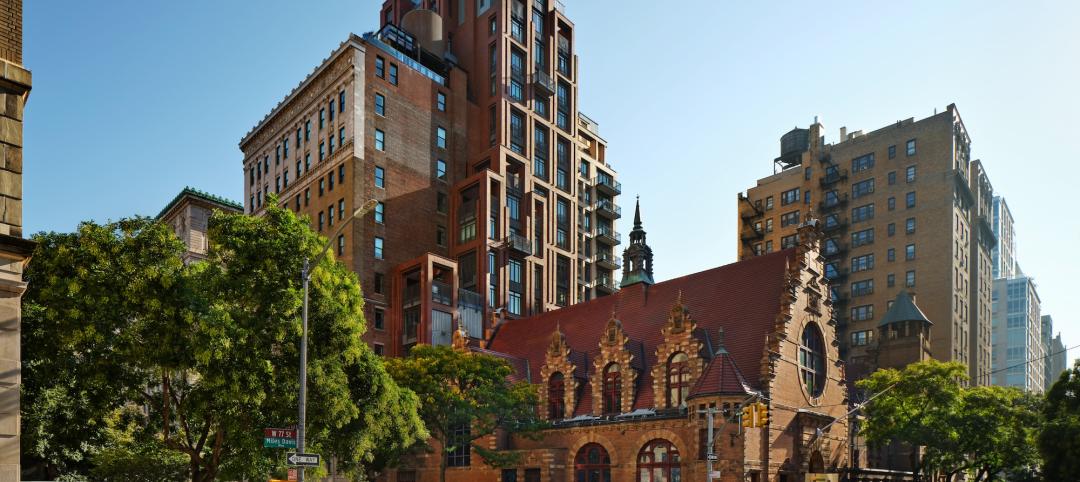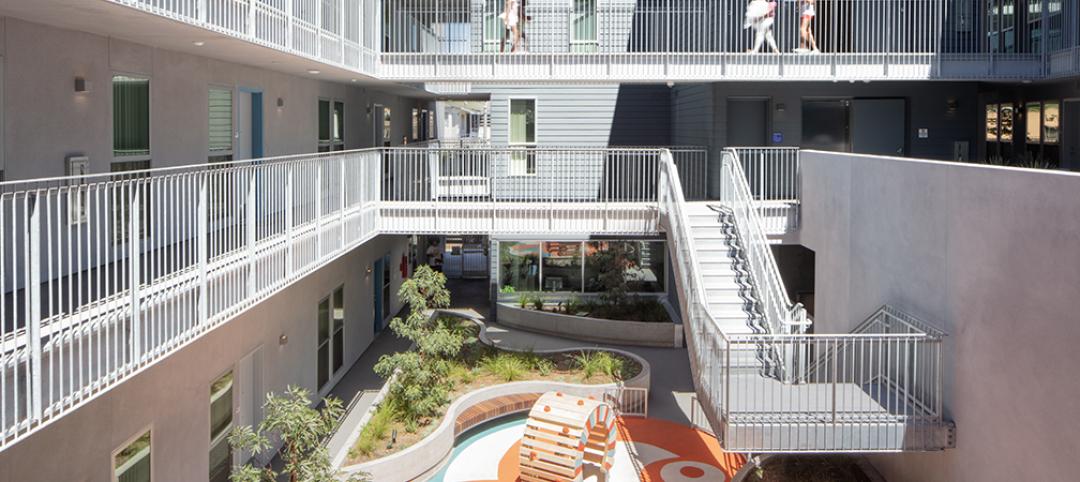Our inaugural “Multifamily Kitchen+Bath Amenities Survey” of multifamily developers, architects, contractors, and other professionals provides exclusive data – 111 charts and tables – on the state of K+B amenity usage in multifamily housing.
CLICK HERE FOR FREE REPORT (SHORT REGISTRATION REQUIRED)
Among the key findings:
Some products stand out as evergreens, based on their high response rates: dishwashers (used by 97% of respondents, including 89% “extensively”); Energy Star appliances (95% usage, including 83% “extensively”); and installed microwave ovens (used by 94%, including 84% “extensively”).
• Project teams had favorite K+B amenities that they use consistently in their work – but they were open to trying many new products, such as induction cooktops, for the first time as well.
• All 106 K+B products or specifications were employed by at least some respondents, although the adoption rate for some of these products or specification types was sometimes in the low single digits.
• Supply chain problems, notably for appliances and cabinets, had impacted project delivery.
• Some project teams installed specific K+B products for the first time; others said they intend to use various K+B products, like air filtration systems, that they had never used before in future projects.
Here's an example of one of the 106 K+B amenities featured in the report:
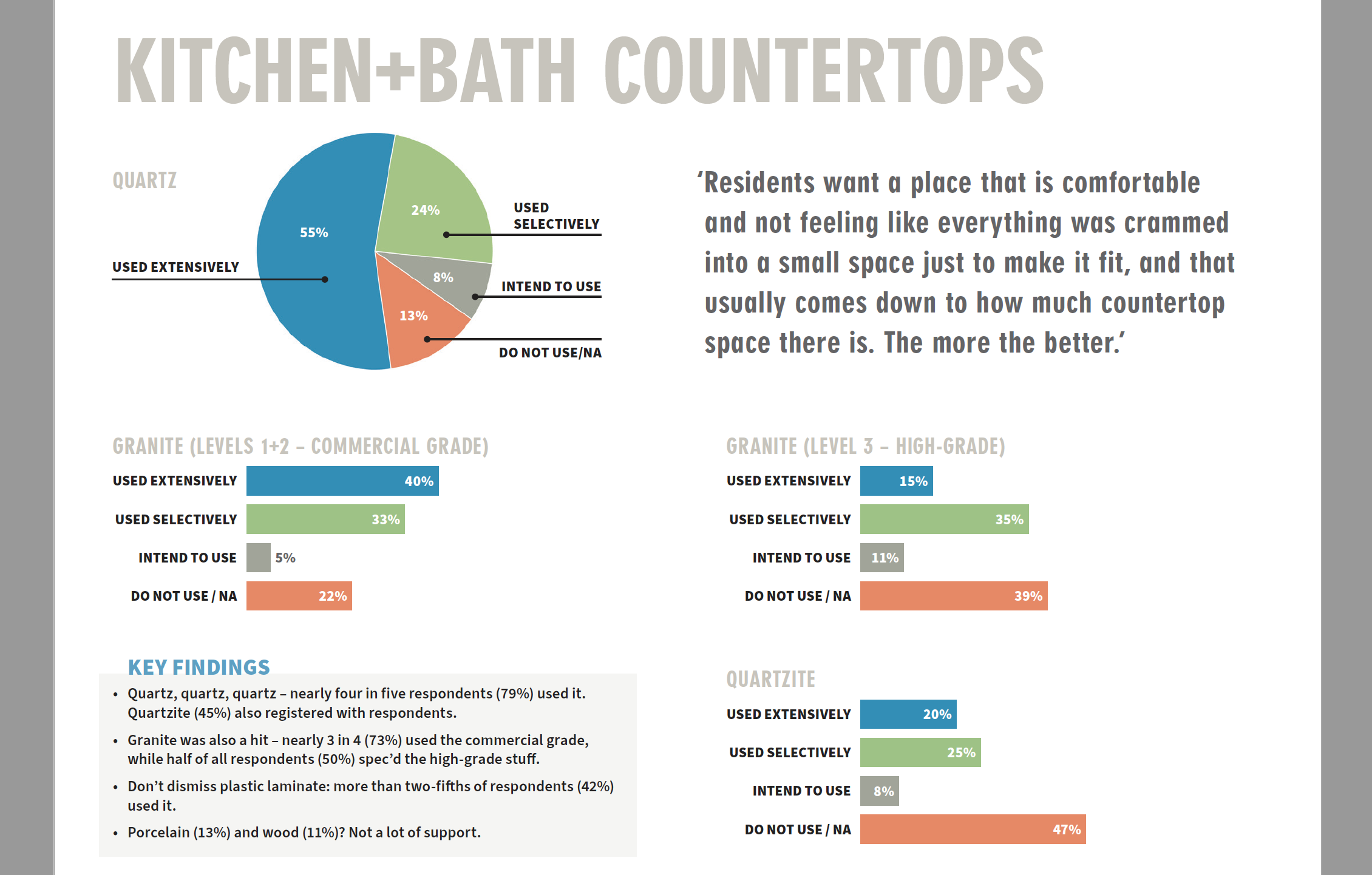
Participants in the survey included architects (45%), developers/property owners/property managers (25%), contractors (16%), interior designers (9%), product manufacturers (3%), and engineers (2%). They developed, designed, and constructed apartments (91%), senior living (54%), townhomes (51%), condominiums (39%), and student housing (33%).
REFRIGERATORS, CABINETS IN SHORT SUPPLY
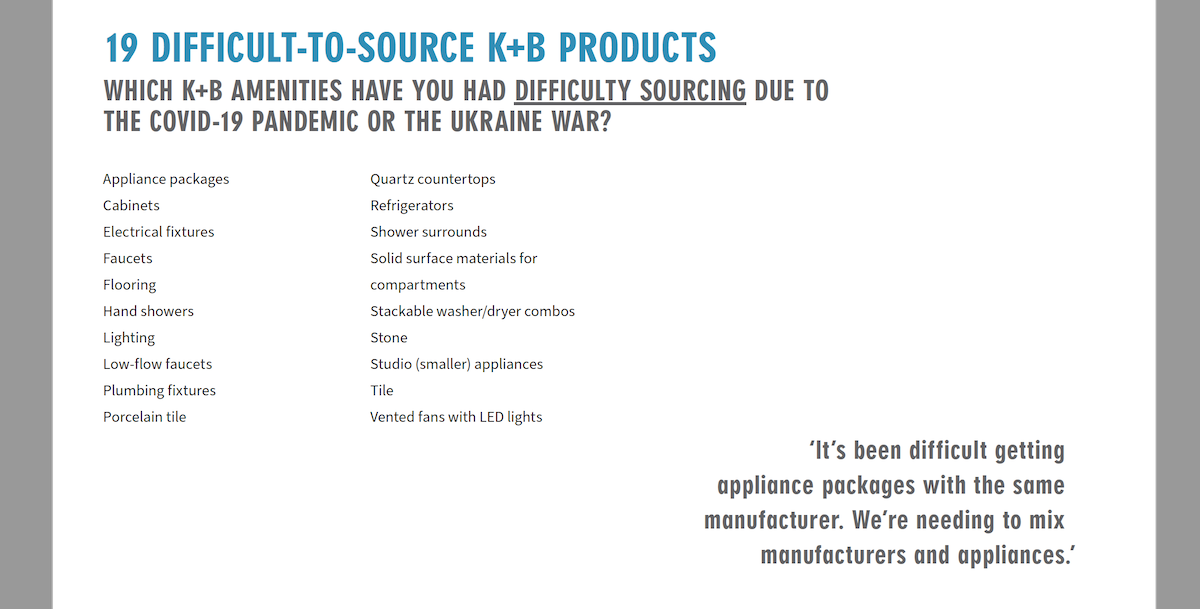
One respondent described the supply chain mess this way: “As developers are attempting to nail down pricing early in the Design Phase … combined with logistic nightmares, getting the design team ahead of the curve and in line with the general contractor and pricing exercises is crucial.”
Appliances came up more often than any other product category. “We’ve been purchasing them early and storing [them] in our own warehouses or changing our spec to purchase models that are in stock/available,” said one respondent.
“It’s been difficult getting appliance packages with the same manufacturer,” said another respondent. “We’re needing to mix manufacturers and appliances.”
Refrigerators were the main culprit cited by respondents. “We’re finding whatever spec is available,” said one. “Need to order well in advance and be flexible,” advised another.
Cabinets were also headache cited by several respondents. “Unfortunately, [we’re] playing the waiting game,” moaned a cabinetless respondent. Another firm said it was using pantry cabinets in bathrooms instead of medicine cabinets.
One pleaded, “[We’re] trying to get locally sourced cabinets, made in the USA.”
The last word on “solving” the K+B amenity shortage problem: “Order way in advance,” advised a respondent.
MULTIFAMILY HOUSING TEAMS 'INTEND TO USE' NEW PRODUCTS
Project teams showed interest in trying new K+B products, styles, or features in the future, even with the usual caution about "experimenting" with anything new.
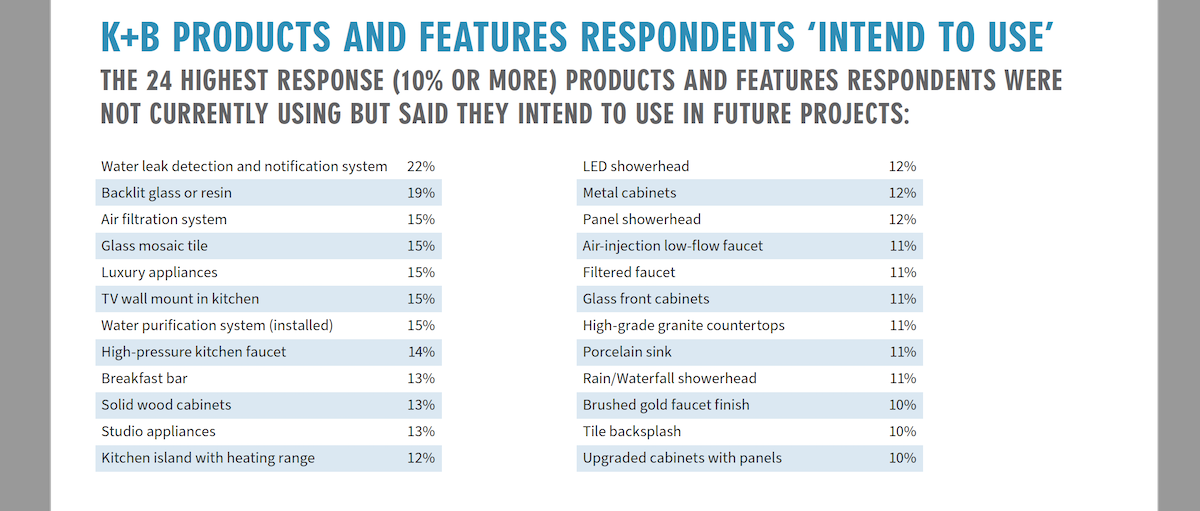
FIRST-TIME USERS TRIED A WIDE VARIETY OF K+B AMENITIES
Some brave souls had actually used one or more new K+B products, styles, or features for the first time:
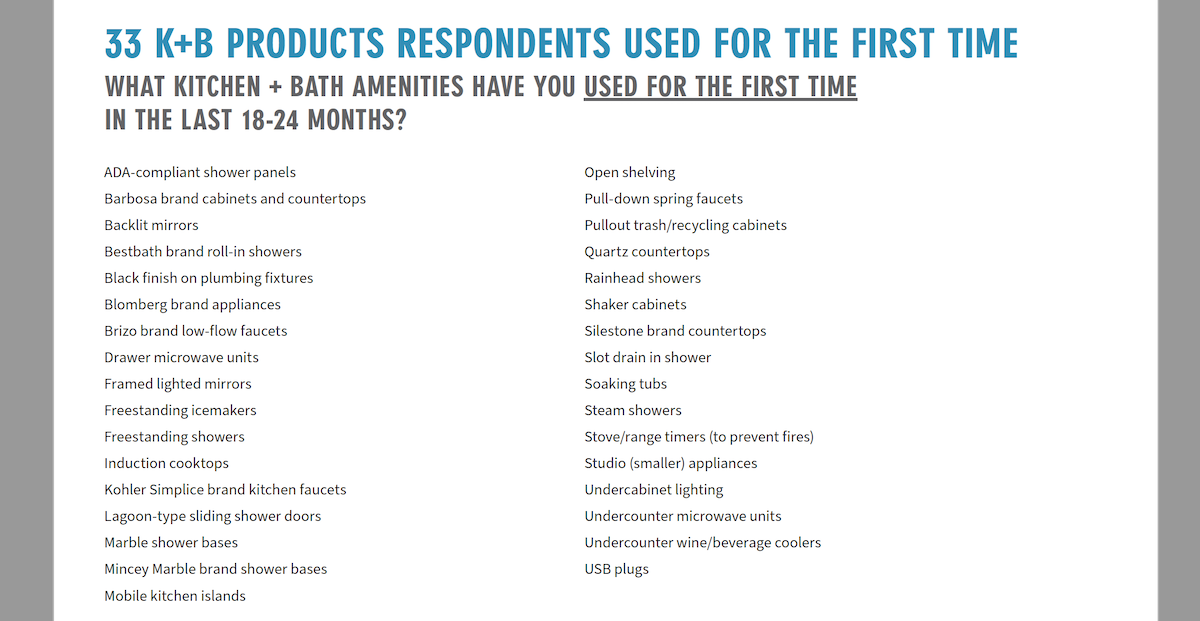
CLICK HERE FOR FREE REPORT (SHORT REGISTRATION REQUIRED)
Related Stories
Adaptive Reuse | Mar 21, 2024
Massachusetts launches program to spur office-to-residential conversions statewide
Massachusetts Gov. Maura Healey recently launched a program to help cities across the state identify underused office buildings that are best suited for residential conversions.
Multifamily Housing | Mar 19, 2024
Jim Chapman Construction Group completes its second college town BTR community
JCCG's 200-unit Cottages at Lexington, in Athens, Ga., is fully leased.
Multifamily Housing | Mar 19, 2024
Two senior housing properties renovated with 608 replacement windows
Renovation of the two properties, with 200 apartments for seniors, was financed through a special public/private arrangement.
MFPRO+ New Projects | Mar 18, 2024
Luxury apartments in New York restore and renovate a century-old residential building
COOKFOX Architects has completed a luxury apartment building at 378 West End Avenue in New York City. The project restored and renovated the original residence built in 1915, while extending a new structure east on West 78th Street.
Multifamily Housing | Mar 18, 2024
YWCA building in Boston’s Back Bay converted into 210 affordable rental apartments
Renovation of YWCA at 140 Clarendon Street will serve 111 previously unhoused families and individuals.
Adaptive Reuse | Mar 15, 2024
San Francisco voters approve tax break for office-to-residential conversions
San Francisco voters recently approved a ballot measure to offer tax breaks to developers who convert commercial buildings to residential use. The tax break applies to conversions of up to 5 million sf of commercial space through 2030.
Apartments | Mar 13, 2024
A landscaped canyon runs through this luxury apartment development in Denver
Set to open in April, One River North is a 16-story, 187-unit luxury apartment building with private, open-air terraces located in Denver’s RiNo arts district. Biophilic design plays a central role throughout the building, allowing residents to connect with nature and providing a distinctive living experience.
Affordable Housing | Mar 12, 2024
An all-electric affordable housing project in Southern California offers 48 apartments plus community spaces
In Santa Monica, Calif., Brunson Terrace is an all-electric, 100% affordable housing project that’s over eight times more energy efficient than similar buildings, according to architect Brooks + Scarpa. Located across the street from Santa Monica College, the net zero building has been certified LEED Platinum.
MFPRO+ News | Mar 12, 2024
Multifamily housing starts and permitting activity drop 10% year-over-year
The past year saw over 1.4 million new homes added to the national housing inventory. Despite the 4% growth in units, both the number of new homes under construction and the number of permits dropped year-over-year.


